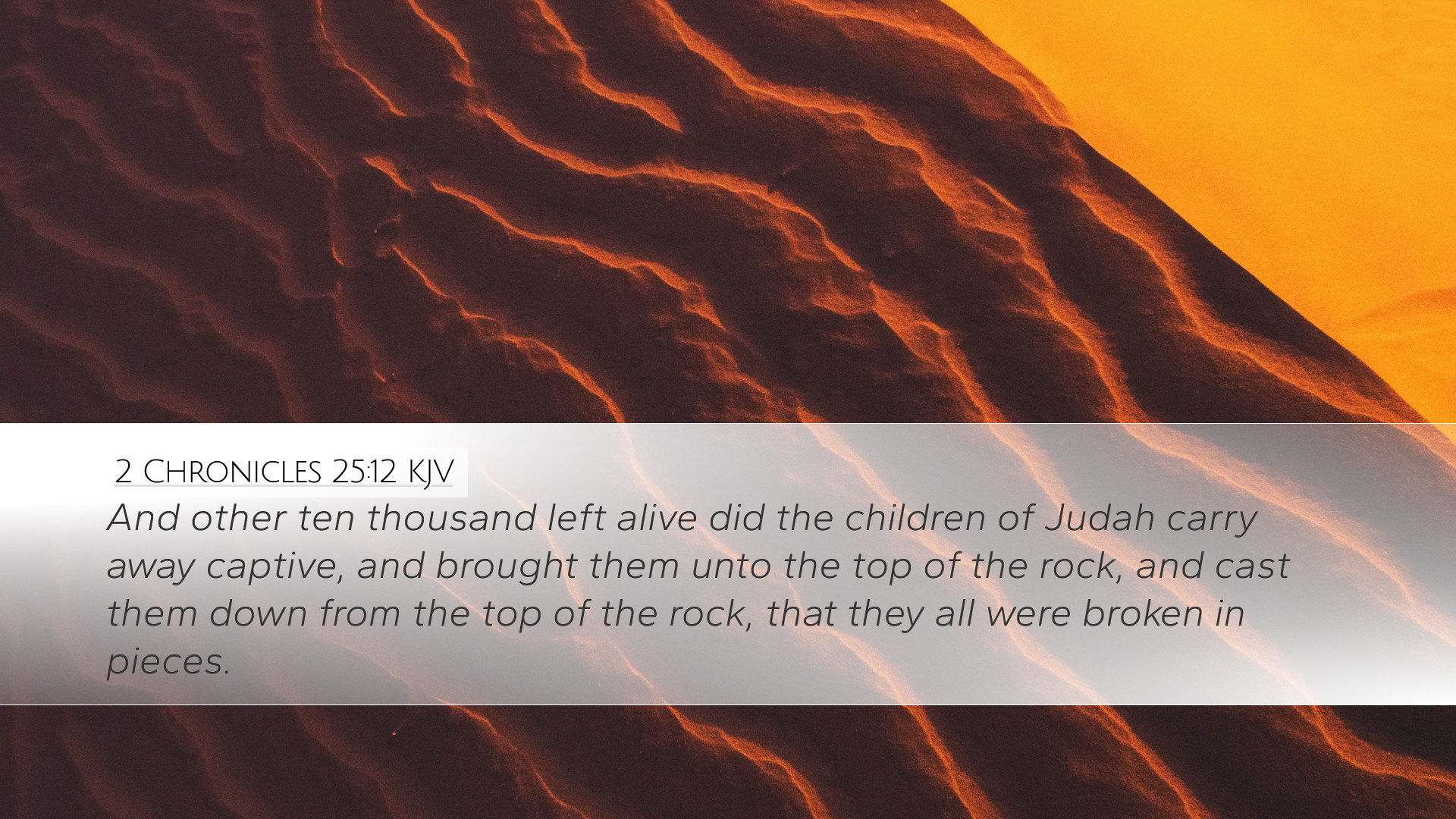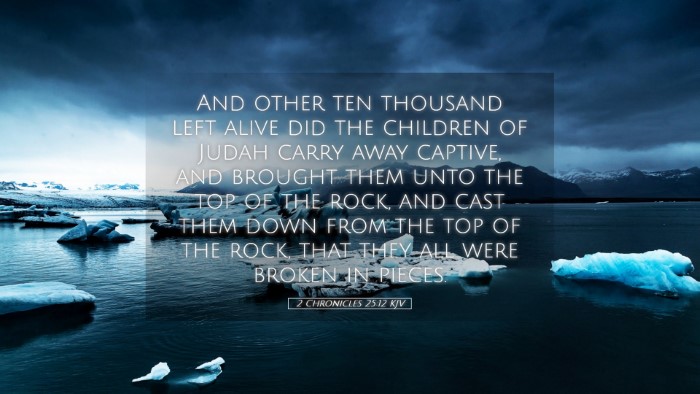Commentary on 2 Chronicles 25:12
Verse Context: 2 Chronicles 25:12 reads: "And they brought back the captives, and they split the spoil with the soldiers." This scripture encapsulates a significant military and spiritual event during the reign of King Amaziah of Judah, reflecting the nationality, identity, and covenant relationship with God.
General Overview
This verse follows the military campaign by Amaziah against the Edomites. The context in which it appears is crucial; it highlights not only the success of Judah in battle but also a deeper theological underpinning concerning the nature of divine support and the consequences of human decisions in warfare.
Theological Insights
The victorious return of captives signifies more than just military success; it highlights God's faithfulness to His people and His role as protector and liberator.
- Divine Sovereignty: The outcome emphasizes that victory in battle is orchestrated by God's divine will rather than mere human effort (Matthew Henry).
- Covenantal Faithfulness: The act of bringing back captives reflects God's ongoing commitment to Israel as part of His covenant promise (Albert Barnes).
- Ethical Considerations: The splitting of the spoils implies a recognition of God’s justice and moral order, guiding the conduct of warfare and its aftermath (Adam Clarke).
Exegesis and Historical Context
In examining this verse, it is necessary to return to the historical events leading up to it. Amaziah had previously hired mercenaries from Israel, but divine advisement led him to trust in God instead of human strength, which is a key moral lesson.
-
Amaziah's Actions: Amaziah had initially shown unwise reliance on foreign troops, risking his dependence on human resources. God's direction through a prophet chastised him, teaching him the importance of faith in God's provision.
-
The Edomite Conflict: Judah's confrontation with Edom had historical and prophetic significance; it was foretold that the neighbors of Israel would fall under judgment, further affirming the sovereignty of God over nations (Matthew Henry).
-
The Role of Captivity: Captivity in biblical texts often carries dual meanings—literal and spiritual. The return of captives not only symbolizes physical rescue but also hints at spiritual renewal and restoration that God offers His people.
Practical Applications
For pastors and theologians, the verse offers multifaceted lessons. First, it serves as a reminder that God's plans and purposes will come to fruition despite human fallibility. For students of theology, it provides insight into how historical narratives inform moral teachings and the nature of God's deliverance.
-
Trust in Divine Power: The narrative encourages believers to place ultimate trust in God rather than relying on worldly strength, showcasing the futility of human alliances opposed to committing to divine purpose (Albert Barnes).
-
Ethical Warfare: The manner in which spoils are divided points to the moral imperative in times of conflict—emphasizing equity and ethical conduct according to God’s standards.
-
Restorative Implications: The return of captives suggests that God's desire is for redemption and reconciliation, an important approach in ministry and community dynamics (Adam Clarke).
Conclusion
The verse serves as a powerful testament to the interaction between divine influence and human action. 2 Chronicles 25:12 teaches that God remains intricately involved in the affairs of His people, ensuring that His will prevails and calling His followers to live righteously, rely on Him, and expect restorative outcomes in their lives and communities. This commentary draws from rich theological tradition, rendering a practical yet profound message suitable for today’s church.


